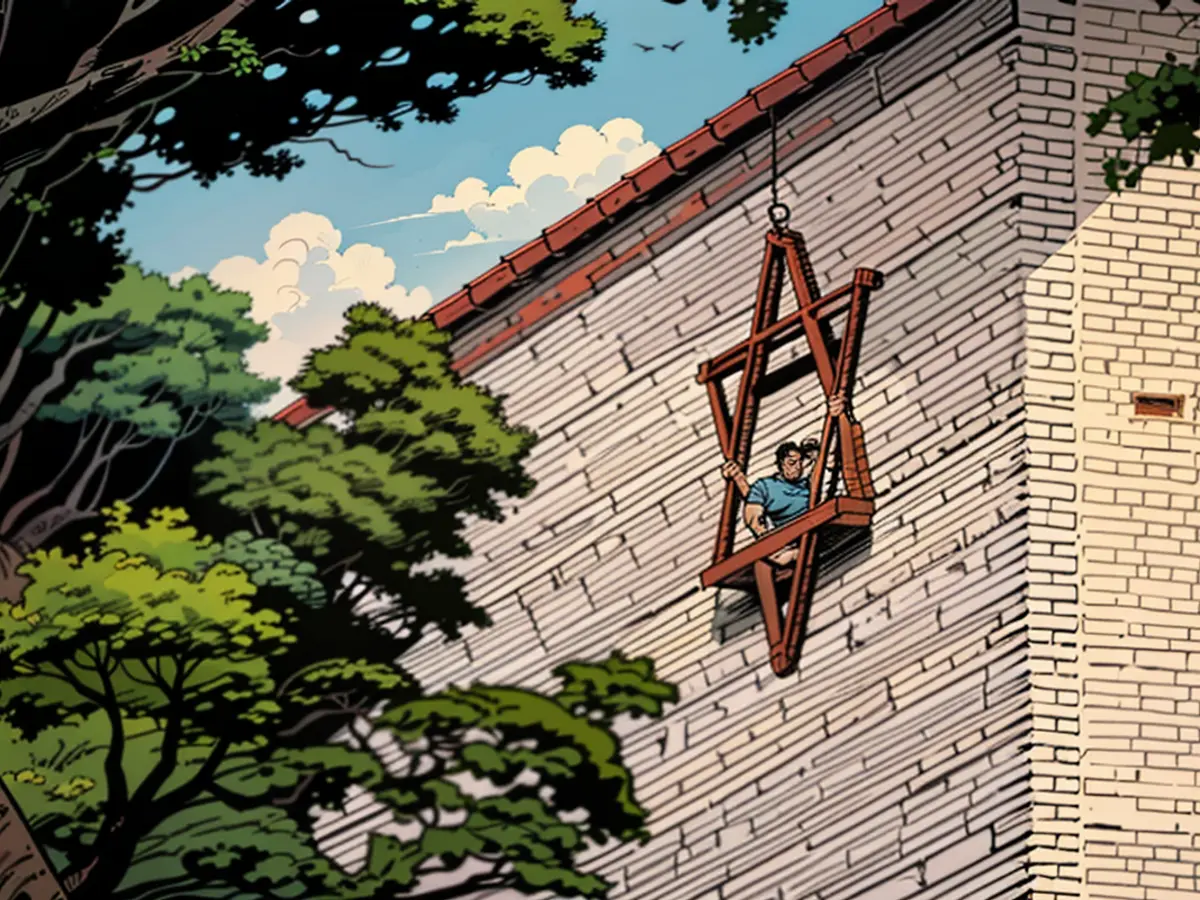"A gift for us all": Potsdam synagogue inaugurated
Jewish life is a part of us," Steinmeier emphasized. He regretted how much antisemitic hate, attacks, and violence in Germany had increased. "Antisemitism is always also a seismograph for how things are going with our democracy - how much this seismograph is shaking since October 7th, should concern us all," the Federal President said. The promise, the categorical imperative of the Basic Law, is "never again." "This promise is a commitment for all who live here and want to live here," he added.
Brandenburg's Minister-President Dietmar Woidke (SPD) stated that the state had supported the synagogue construction in recognition of historical responsibility. This obligated politics to contribute to "good conditions for the revival and maintenance of a diverse Jewish life." Furthermore, the new building sets an important sign against resurging hate and hatred, to which Jews and Jews have been exposed.
The Shoah destroyed the centuries-old coexistence of Jews and non-Jews in Brandenburg, Woidke said. Only in the 90s, thankfully, had Jews and Jews come from Eastern Europe. "They came with the awareness that Germany had changed," Woidke said. "It is now up to us to deserve this trust." The new building provides the space where this trust can grow.
It is a remarkable day when a synagogue dedication takes place on German soil, from where the greatest human atrocity originated, Abraham Lehrer, President of the Central Welfare Organization of Jews in Germany, said. Potsdam is the last state capital that receives a synagogue again. That this is now the case shows how much Jewish life has been set back.
From the perspective of Potsdam's Mayor Mike Schubert (SPD), the synagogue now has its place where it belongs - in the heart of Potsdam. "The new synagogue expresses our city's historical trust that religion can be freely practiced in our city," Schubert said. This trust was reciprocated by the Potsdamers, regardless of their faith. "There is no 'they,' only 'we,' and without Jews and Jews who can freely follow their faith, Potsdam is not Potsdam."
Federal Chancellor Olaf Scholz (SPD), whose attendance was also announced, had to cancel his participation short-term due to scheduling conflicts. However, Federal Foreign Minister Annalena Baerbock (Greens) was present but did not speak.
The former Potsdam Synagogue was repurposed by the National Socialists in 1938, heavily damaged by a bombing raid in 1945, and later demolished. Since then, the communities had only been provided with provisional spaces.
The design and use of the new synagogue, for which planning permission was granted as early as 2010, had been the subject of lengthy disputes in Potsdam - even within the Jewish communities. The completed building was begun in August 2021. The construction costs, which were originally estimated at five million euros, ultimately amounted to 16.5 million euros.
Mike Schubert, the Mayor of Potsdam, expressed his joy that the new synagogue now has its place in the heart of the city. This development, he said, reflects Potsdam's historical trust in the freedom of religious practice. Dietmar Woidke, the Minister-President of Brandenburg, highlighted the state's role in supporting the synagogue construction as a commitment to historical responsibility and diversifying Jewish life. Steinmeier, the Federal President, emphasized Germany's commitment to never repeating the atrocities of the past, with the promise of democracy serving as a bulwark against rising antisemitism. The opening of the synagogue in Potsdam, Abraham Lehrer noted, marks a significant step in regaining the centuries-old coexistence of Jews and non-Jews in Brandenburg, which was disrupted by the Shoah.
In conclusion, the opening of the new synagogue in Potsdam is a significant event that underscores Germany's commitment to Jewish life and its historical obligation to provide conditions for its revival and maintenance. The fact that the Shoah's devastating impact can now be counteracted by the establishment of a new synagogue in Potsdam serves as a potent reminder of the promise made in the Basic Law: 'Never again.' The event also represents a symbolic victory for democracy and its ability to combat antisemitism, which Steinmeier referred to as a 'seismograph' of the health of German democracy.







